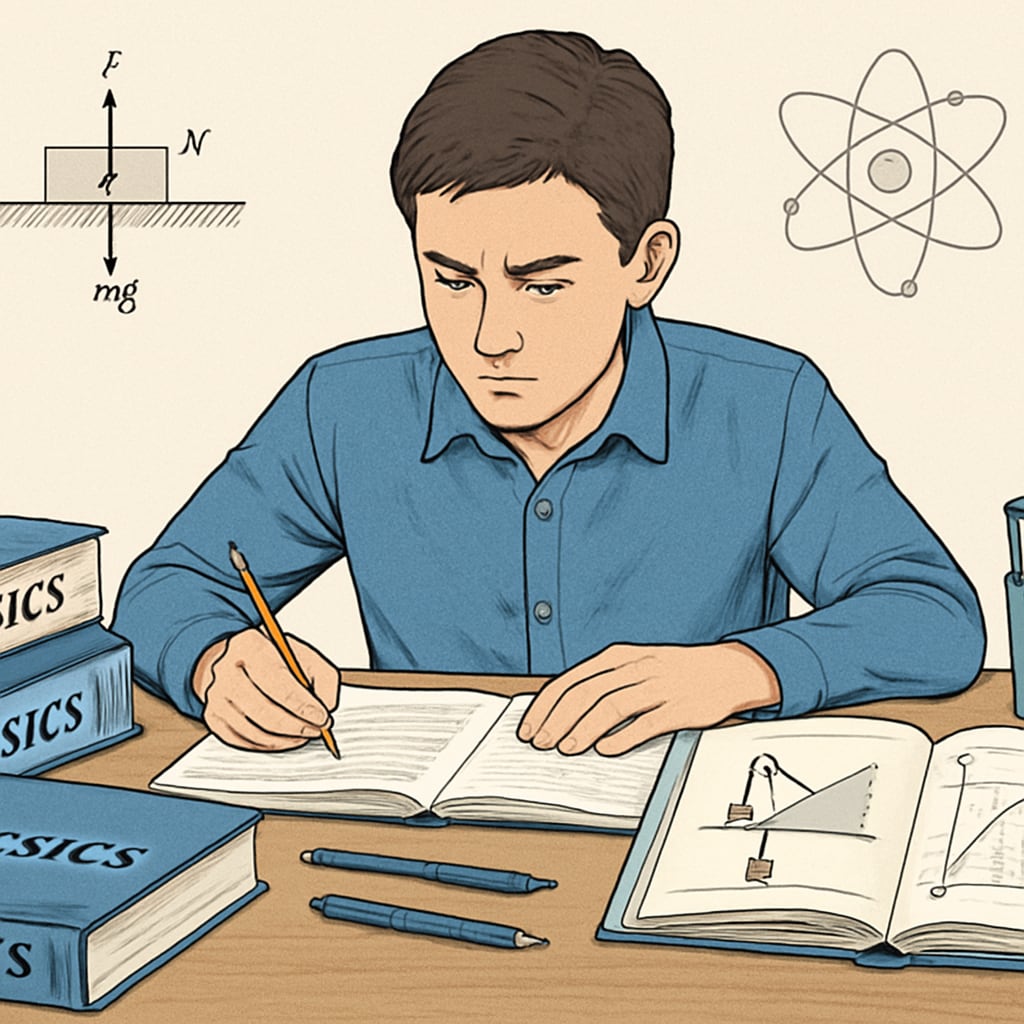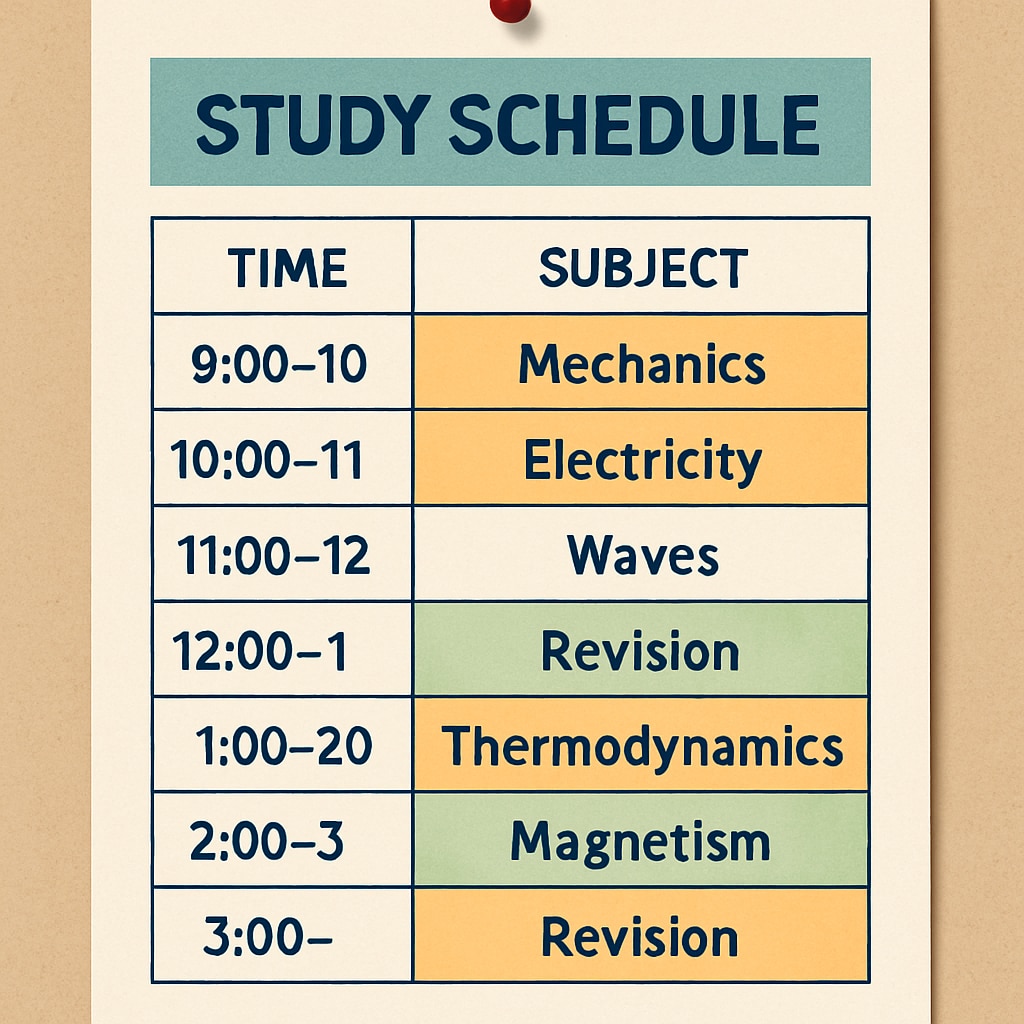Managing BSc Physics backlogs can be an overwhelming challenge, especially when students face time constraints and multiple academic responsibilities. With concepts like time management, strategic planning, and effective study techniques, students can efficiently navigate this journey and recover lost ground. This article delves into the common hurdles associated with clearing physics backlogs and offers actionable strategies to help students build a solid foundation for future academic success.
Understanding Physics Backlogs and Their Root Causes
Before diving into solutions, it’s important to understand why backlogs occur. In Physics, topics often build upon one another, requiring a strong grasp of fundamental principles like mechanics, thermodynamics, and electromagnetism. Students may accumulate backlogs due to inadequate conceptual understanding, insufficient practice, or poor time management.
For example, failing to master basic concepts like Newton’s Laws of Motion can make advanced topics such as rotational mechanics nearly impossible to comprehend. As a result, students may feel overwhelmed and struggle to catch up during their final attempt.

Effective Time Management Techniques
Time management is a critical skill when tackling academic backlogs. Students need to prioritize tasks based on urgency and importance while allocating sufficient time for both learning and revision. Here are some proven techniques:
- Create a study schedule: Divide the backlog into manageable sections and assign specific time slots for each topic.
- Use the Pomodoro Technique: Work in focused intervals (e.g., 25 minutes) followed by short breaks to maintain productivity.
- Avoid multitasking: Concentrate on one topic at a time to improve comprehension and retention.
- Track progress: Regularly review your progress to identify gaps and refine your study plan.
Effective time management not only helps clear backlogs but also builds discipline and organizational skills essential for advanced physics coursework.

Mastering Physics Concepts Through Active Learning
Active learning is an effective way to grasp complex physics concepts and retain knowledge. This approach involves engaging directly with the material rather than passively reading or listening. Examples include:
- Problem-solving: Practice solving numerical problems to apply theoretical knowledge.
- Visual aids: Use diagrams, graphs, and simulations to understand abstract concepts better.
- Peer discussions: Collaborate with classmates to discuss challenging topics and exchange ideas.
- Online resources: Utilize platforms like Wikipedia and Britannica for supplementary learning materials.
By actively engaging with the subject matter, students can overcome gaps in understanding and develop a deeper appreciation for physics.
Integrating Practical Applications to Reinforce Learning
Physics is not merely theoretical; practical applications play a crucial role in solidifying concepts. Experiments, simulations, and real-world examples can bridge the gap between theory and practice. Here’s how students can leverage practical learning:
- Perform experiments: Conduct hands-on experiments in a controlled environment to observe physical phenomena.
- Simulate scenarios: Use software tools to simulate complex systems like circuits or wave propagation.
- Link theory to reality: Relate topics like kinematics to everyday experiences, such as sports or vehicle motion.
Practical application not only enhances understanding but also fosters curiosity and innovation, which are essential for success in advanced physics studies like BSc Physics.
Final Attempt: Staying Motivated and Focused
Facing backlogs during the final attempt can feel daunting, but maintaining motivation and focus is key. Here are some strategies to stay on track:
- Set clear goals: Define specific objectives for each study session to maintain focus.
- Celebrate progress: Reward yourself for completing milestones to stay motivated.
- Seek support: Reach out to teachers, peers, or mentors for guidance and encouragement.
- Practice self-care: Ensure proper sleep, nutrition, and exercise to keep your mind sharp.
As a result, students can confidently address their backlogs and lay the groundwork for excelling in BSc Physics and beyond.
Readability guidance: This article uses concise paragraphs, lists to summarize key points, and transitions to ensure smooth flow. It emphasizes actionable strategies and avoids excessive jargon, making it suitable for students of varying academic levels.


